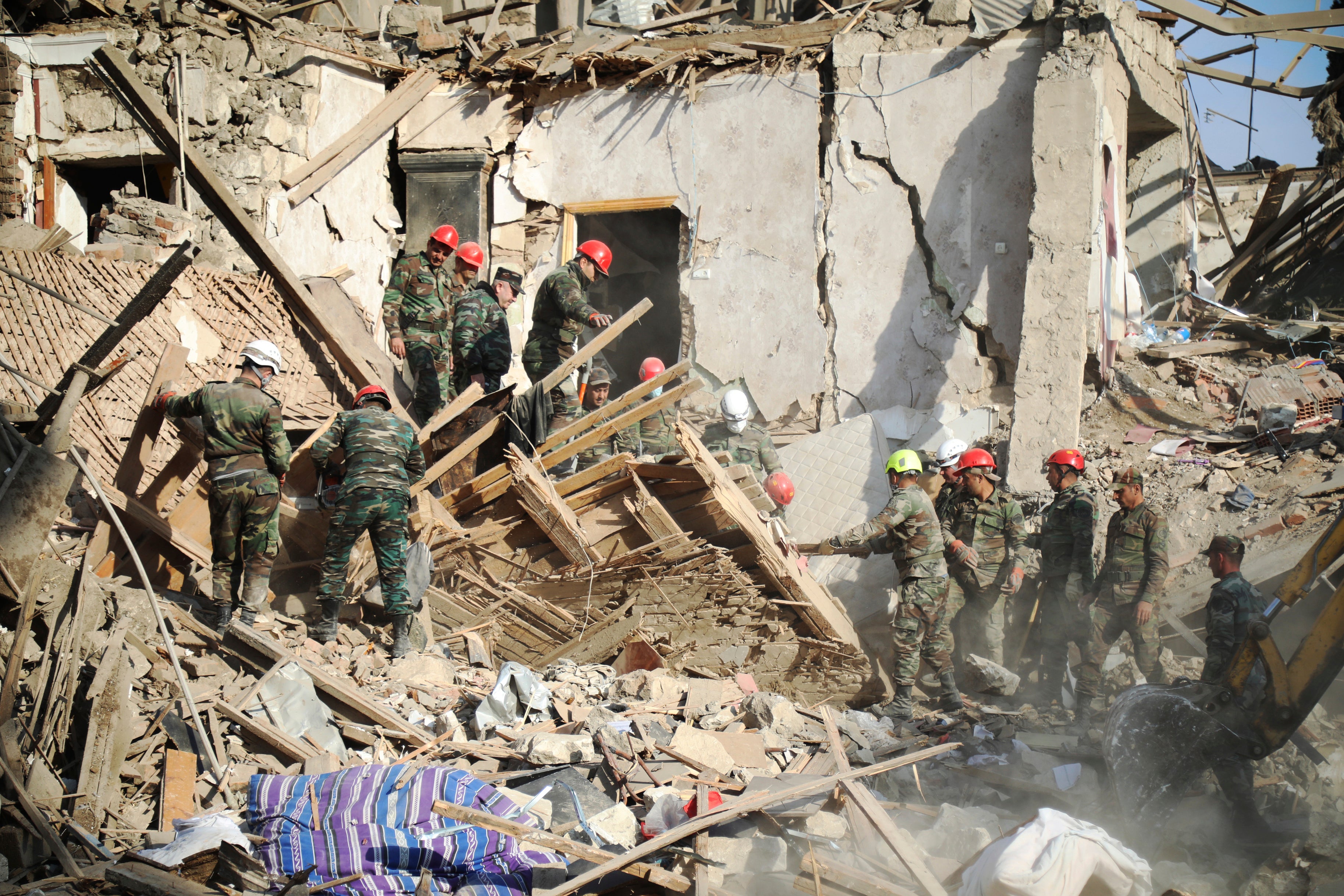Armenia, Azerbaijan report attacks despite cease-fire deal
Armenia and Azerbaijan on Monday have accused each other of attacks over the separatist territory of Nagorno-Karabakh despite a cease-fire deal brokered by Russia in an effort to end the worst outbreak of hostilities in decades

Your support helps us to tell the story
From reproductive rights to climate change to Big Tech, The Independent is on the ground when the story is developing. Whether it's investigating the financials of Elon Musk's pro-Trump PAC or producing our latest documentary, 'The A Word', which shines a light on the American women fighting for reproductive rights, we know how important it is to parse out the facts from the messaging.
At such a critical moment in US history, we need reporters on the ground. Your donation allows us to keep sending journalists to speak to both sides of the story.
The Independent is trusted by Americans across the entire political spectrum. And unlike many other quality news outlets, we choose not to lock Americans out of our reporting and analysis with paywalls. We believe quality journalism should be available to everyone, paid for by those who can afford it.
Your support makes all the difference.Armenia and Azerbaijan on Monday accused each other of attacks over the separatist territory of Nagorno-Karabakh despite a cease-fire deal brokered by Russia in an effort to end the worst outbreak of hostilities in the region in decades.
The cease-fire came into effect on Saturday, but was immediately challenged by mutual claims of violations that persisted throughout the weekend and continued on Monday morning.
Armenian Defense Ministry spokeswoman Shushan Stepanian said Monday that Azerbaijani forces were “intensively shelling the southern front" of the conflict zone.
Azerbaijan's Defense Ministry, meanwhile, insisted that Azerbaijan was observing the cease-fire but accused Armenian forces of shelling the Goranboy, Terter and Agdam regions of Azerbaijan that lie around Nagorno-Karabakh.
The recent bout of fighting between Azerbaijani and Armenian forces started Sept. 27 and has left hundreds of people dead in the biggest escalation of the decades-old conflict over Nagorno-Karabakh since a separatist war there ended in 1994. The region lies in Azerbaijan but has been under control of ethnic Armenian forces backed by Armenia.
The foreign ministers of Armenia and Azerbaijan signed a truce in Moscow after Russian President Vladimir Putin had brokered it in a series of calls with Azerbaijani President Ilham Aliyev and Armenian Prime Minister Nikol Pashinian.
The cease-fire took effect at noon Saturday, after talks in Moscow that were sponsored by Russian Foreign Minister Sergey Lavrov. The deal stipulated that the cease-fire should pave the way for talks on settling the conflict.
If the truce had held, it would have marked a major diplomatic coup for Russia, which has a security pact with Armenia but has also cultivated warm ties with Azerbaijan.